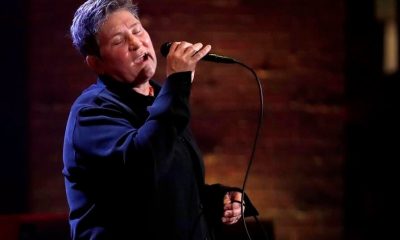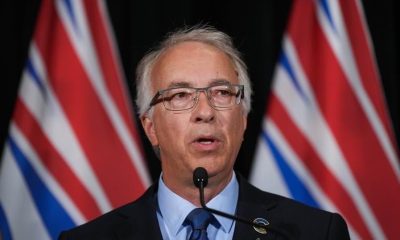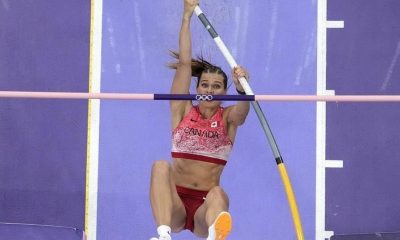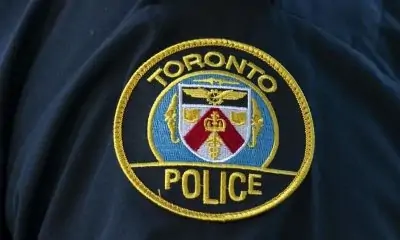You’re reading an excerpt from the Today’s WorldView newsletter. Sign up to get the rest free, including news from around the globe and interesting ideas and opinions to know, sent to your inbox every weekday.
Politics
Alexander Dugin: The global politics of Russia’s nationalist ideologue – The Washington Post
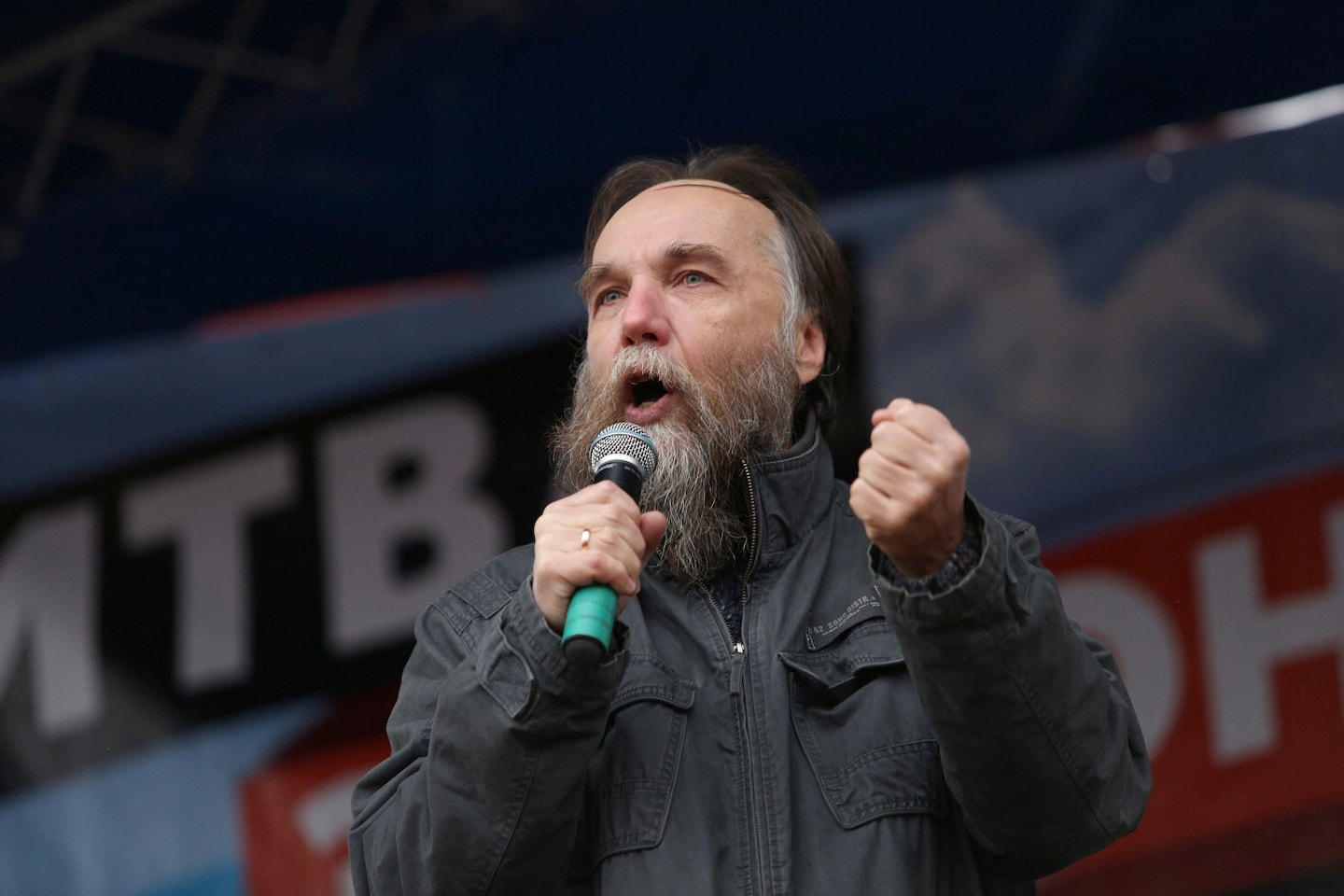
In the fiery aftermath of the car explosion that killed his daughter, Alexander Dugin stood nearby in shock. The prominent far-right nationalist ideologue and putative Kremlin whisperer appeared to feature in videos uploaded to social media, his head in his hands, staring in disbelief at the smoldering wreckage on a street outside Moscow on Saturday night. Darya Dugina, 29, the chief editor of a disinformation website called United World International and a political commentator in her own right, died in the blast.
Two days later, Russia’s internal security service, the FSB, identified a supposed Ukrainian secret agent as the culprit and said she had fled to Estonia with her young daughter after carrying out the attack following weeks of preparatory surveillance. Ukrainian officials rejected the claim; one adviser to President Volodymyr Zelensky said on Ukrainian television that his nation is “not a criminal state, like the Russian Federation is, and moreover not a terrorist state.” (On Monday, Russian missiles continued to rain down on civilian population areas in various parts of Ukraine.)
Conspiracy theories abound about an incident all seem sure was an assassination. Rumors swirled that Dugin may have been the intended target, either by foreign agents or internal rivals within Russia. Some pundits speculated it was a false flag operation carried out by the FSB — with Dugin even a complicit accomplice — to further darken attitudes toward Ukraine and justify an escalation.
In a statement, Dugin used the tragedy of his daughter’s death to call for a decisive victory over Ukraine. “Our hearts yearn for more than just revenge or retribution,” he said. “It’s too small, not the Russian style. We only need our Victory. My daughter laid her maiden life on its altar. So win, please!”
Dugin’s rhetoric, writings and speeches are said to have shaped the thinking of a generation of Russian political elites, including President Vladimir Putin, in the first decade of the new century. (Though some analysts stress that his influence over the Kremlin can be overstated.) As my colleagues noted, he has a long history of championing a Russian conquest of Ukraine.
Dugin claims to have called for the annexation of Crimea as early as the 1990s and is credited with helping revive the concept of “Novorossiya,” or “New Russia” — the term invoked in the 18th century for lands the Russian empire had captured from the Ottomans, much of which is now in Ukraine — as a nationalist driver for Russian ambitions. He is also the lead propagator of the idea of “Russky Mir,” or “Russian world” — a phrase linked to the expansive, revanchist nationalism of the Putin era, anchored in both imperial nostalgia and Orthodox Christian identity.
“There is no place for Poland on the Eurasian continent. […]
Russia, in its geopolitical and sacral-geographical development, is not interested in the existence of an independent Polish state in any form,
wrote Aleksandr Dugin in his “Foundation of Geopolitics” (1997). pic.twitter.com/5SVtbrdu2s
— Stefan Tompson (@StefanTompson) August 21, 2022
Those ideological moorings led him to pursue activities that would see him get sanctioned by the United States. “He was active in breakaway regions in the 2008 Russia-Georgia war and in 2014 in Ukraine, where U.S. officials say he recruited individuals with military and combat experience to fight on behalf of the self-proclaimed Donetsk People’s Republic,” my colleagues reported.
“Ukraine has to be either vanished from Earth and rebuilt from scratch or people need to get it,” Dugin said in 2014 as a political crisis in Kyiv served as the pretext for the Kremlin’s initial land grab next door. “I think kill, kill and kill. No more talk anymore.”
In his 1997 best-selling book, “Foundations of Geopolitics,” Dugin outlined his defining worldview. He sees Russia as a civilization-state at the heart of what ought to be an “Eurasian empire,” a landmass stretching from Vladivostok on the Pacific through Europe. It is fundamentally at odds, in Dugin’s reckoning, with the maritime power of the United States and its lesser sidekick, Britain, and ought to represent a kind of illiberal bulwark against Western liberalism.
He also advised in the book that Russia deploy the tacit influence and disinformation campaigns in Western democracies that we’ve seen in recent years. “It is especially important to introduce geopolitical disorder into internal American activity,” Dugin wrote, urging Russia to fuel “all kinds of separatism and ethnic, social and racial conflicts” to destabilize “internal political processes” in the United States.
Dugin sees Russia’s geopolitical “destiny,” as he put it in an interview earlier this year, as an expansion of its “Eurasian” power — “the assertion of Russia as an independent civilization with its own traditional values. And it will not be complete until we unite all the eastern Slavs and all the Eurasian brothers into one big space. Everything follows from this logic of destiny — and so does the Ukraine.”
By 2011, Putin was pushing the creation of a “Eurasian Union” with Russia and a handful former Soviet states amenable to closer ties with Moscow. Dugin’s embrace of Russian-centric “Eurasianism” led him to eventually cheer on other nations’ versions of the theme, including China’s Belt and Road Initiative. He also cultivated closer ties to Turkish nationalists, some of whom draw on a long tradition of Turkish “Eurasianism.”
When Zhang Weiwei (reportedly Xi Jinping’s favourite scholar) wants to chat with foreigners about his Xinjiang denialism, who does he reach out to?
Aleksandr Dugin, the Russian neo-fascist.
Horseshoe theory in practice. pic.twitter.com/4abJpOvijp
— Fergus Ryan (@fryan) August 22, 2022
Dugin, backed by ultranationalist Russian business magnate Konstantin Malofeev, has found fellow travelers across the world. He cheered on the 2016 election of former president Donald Trump in a conversation with U.S. conspiracy theorist Alex Jones. Dugin’s writings were hailed by a motley cast of American white supremacists and far-right extremists.
Dugin also found common cause with Europe’s far right, including influential parties in France, Italy and Austria. He has met far-right Dutch leader Thierry Baudet, and expressed admiration for the politician’s movement in the Netherlands. In a recent interview, Baudet described Putin’s war in Ukraine as a “great” and “heroic” fight against the “globalists” and the “deep state.”
Dugin now finds himself at the heart of the latest conflagration between Russia and Ukraine, with Moscow pinning the blame for the car explosion on Kyiv. Andrii Yusov, spokesman for Ukraine’s chief directorate of military intelligence, told my colleagues that his agency would not comment on the incident. But he added that “I can say that the process of internal destruction of the ‘Russky Mir,’ or ‘the Russian world,’ has begun,” and said that “the Russian world will eat and devour itself from the inside.”
Politics
NDP caving to Poilievre on carbon price, has no idea how to fight climate change: PM

OTTAWA – Prime Minister Justin Trudeau says the NDP is caving to political pressure from Conservative Leader Pierre Poilievre when it comes to their stance on the consumer carbon price.
Trudeau says he believes Jagmeet Singh and the NDP care about the environment, but it’s “increasingly obvious” that they have “no idea” what to do about climate change.
On Thursday, Singh said the NDP is working on a plan that wouldn’t put the burden of fighting climate change on the backs of workers, but wouldn’t say if that plan would include a consumer carbon price.
Singh’s noncommittal position comes as the NDP tries to frame itself as a credible alternative to the Conservatives in the next federal election.
Poilievre responded to that by releasing a video, pointing out that the NDP has voted time and again in favour of the Liberals’ carbon price.
British Columbia Premier David Eby also changed his tune on Thursday, promising that a re-elected NDP government would scrap the long-standing carbon tax and shift the burden to “big polluters,” if the federal government dropped its requirements.
This report by The Canadian Press was first published Sept. 13, 2024.
The Canadian Press. All rights reserved.
Politics
Quebec consumer rights bill to regulate how merchants can ask for tips

Quebec wants to curb excessive tipping.
Simon Jolin-Barrette, minister responsible for consumer protection, has tabled a bill to force merchants to calculate tips based on the price before tax.
That means on a restaurant bill of $100, suggested tips would be calculated based on $100, not on $114.98 after provincial and federal sales taxes are added.
The bill would also increase the rebate offered to consumers when the price of an item at the cash register is higher than the shelf price, to $15 from $10.
And it would force grocery stores offering a discounted price for several items to clearly list the unit price as well.
Businesses would also have to indicate whether taxes will be added to the price of food products.
This report by The Canadian Press was first published Sept. 12, 2024.
The Canadian Press. All rights reserved.
Politics
Youri Chassin quits CAQ to sit as Independent, second member to leave this month

Quebec legislature member Youri Chassin has announced he’s leaving the Coalition Avenir Québec government to sit as an Independent.
He announced the decision shortly after writing an open letter criticizing Premier François Legault’s government for abandoning its principles of smaller government.
In the letter published in Le Journal de Montréal and Le Journal de Québec, Chassin accused the party of falling back on what he called the old formula of throwing money at problems instead of looking to do things differently.
Chassin says public services are more fragile than ever, despite rising spending that pushed the province to a record $11-billion deficit projected in the last budget.
He is the second CAQ member to leave the party in a little more than one week, after economy and energy minister Pierre Fitzgibbon announced Sept. 4 he would leave because he lost motivation to do his job.
Chassin says he has no intention of joining another party and will instead sit as an Independent until the end of his term.
He has represented the Saint-Jérôme riding since the CAQ rose to power in 2018, but has not served in cabinet.
This report by The Canadian Press was first published Sept. 12, 2024.
The Canadian Press. All rights reserved.
-

 News8 hours ago
News8 hours agok.d. lang gets the band back together for Canadian country music awards show
-

 News8 hours ago
News8 hours agoNATO military committee chair, others back Ukraine’s use of long range weapons to hit Russia
-

 News8 hours ago
News8 hours ago‘Challenges every single muscle’: Champion tree climber turns work into passion
-

 News8 hours ago
News8 hours agoCavaliers and free agent forward Isaac Okoro agree to 3-year, $38 million deal, AP source says
-

 News8 hours ago
News8 hours agoLiverpool ‘not good enough’ says Arne Slot after shock loss against Nottingham Forest
-

 News8 hours ago
News8 hours agoMPs to face new political realities on their return to Ottawa
-

 News8 hours ago
News8 hours agoAir Canada, pilots still far apart as strike notice deadline approaches
-

 News8 hours ago
News8 hours agoToronto police investigating fatal stabbing in the city’s west end as homicide



